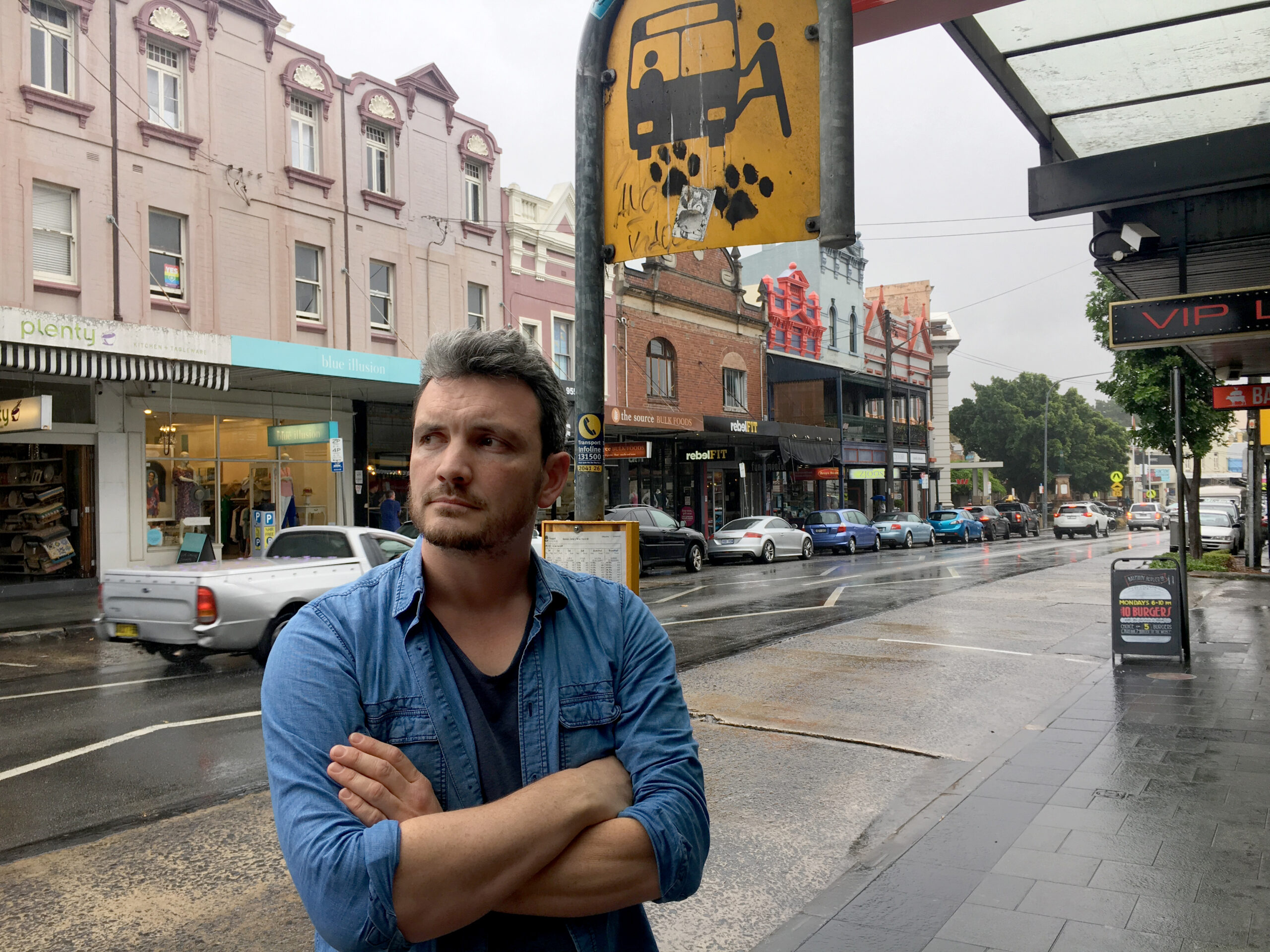

BY JOSH KINDL
The state government has been unable to find a contractor to construct the Rozelle Interchange as part of WestConnex Stage 3. Gladys Berejiklian’s government rejected the only bid it received to build the proposed interchange, which if completed would help connect the M4 and M5 motorways.
Nathan English, co-convenor of Eco Transit, says the failure of the government to find a contractor to complete the interchange is sending a message to the general public that the project may not be feasible.
“It’s collapsing under its own weight,” he said.
The Rozelle interchange is the primary feature of WestConnex’s controversial Stage 3, which plans to link the M4-M5 tunnels via two four-lane, underground tunnels travelling each way between Haberfield and St Peters.
The interchange will also be accompanied by three 35 metre exhaust stacks built in the Rozelle Rail Yard, which many complain will compromise local air quality and jeopardise the health of nearby residents, particularly children.
Supporters of the project tout the improved travel times that will follow its completion, while critics say that the interchange’s complex design, huge cost and associated pollution concerns are not worth the hypothetical benefits.
Sydney Lord Mayor, Clover More, says that the nature of Stage 3 will lead to challenges in sourcing a suitable contract to complete the project and deliver on the government’s promises.
“I’m not surprised that the NSW Government was unable to find a tenderer for a project that is so fundamentally flawed in its design and vision,” she said.
“Due to the scale and the severe engineering challenges associated with the proposed interchange, it’s no wonder that construction companies are telling the NSW Government to abandon this project by walking away from the tendering process,” she added.
A spokesperson from the Roads and Maritime Service says that, despite the failure of the government to attract a suitable contractor for the project, company interest in building Stage 3 remains strong.
“Initial respondents remain interested in exploring alternative procurement solutions,” the spokesperson said.
The state government has also met considerable opposition from residents in the Inner West, as well as various community groups and the Inner West Council, following the recent release of Stage 3’s Environmental Impact Statement (EIS).
The EIS was immediately controversial amongst WestConnex’s opponents as it was released less than a fortnight after government stop taking submissions for the project’s initial concept design, leading many to believe that the government wasn’t listening to their concerns.
An Inner West Council spokesperson said that this brief turnaround gave “Council and the community the impression that consultation on WestConnex Stage 3 is rushed and tokenistic.”
Anne Picot, organiser for the WestConnex Action Group group and Inner West resident, agreed.
“They hadn’t taken into consideration all of the objections that had been lodged on the concept design because they published the EIS within 12 days of having received those objections.
“It meant that community consultation was a complete sham,” she said.
Recently, the Coalition Against WestConnex (CAW), a network of community organisations, mobilised in a show of protest against the project, handing in over 10,000 handwritten submissions from local citizens who feel that the project will do more harm than good.
This dwarfs the number of submissions to the concept design, which totalled approximately 1500.
Ms Picot hopes that a greater number of submissions to the project will oblige the government to listen to the voices of the people Stage 3 will affect most.
“It’s political pressure to try get the volume up to make sure that they couldn’t say that the community isn’t concerned about this.
“The concerns we have expressed are real,” she said.
The government is currently seeking bidders from the private sector to buy a 51 percent stake in the Sydney Motorway Corporation (SMC), the sale of which would help fund Stage 3.
Mr English believes that privatisation of WestConnex and Stage 3 will ultimately harm the ability of the taxpayer to keep organisations accountable for the execution of public infrastructure projects such as this.
“Once they get approval and then sell SMC to the private sector… they’ve sold the rights to design the project, to build the project, to own it and operate it and maintain it,” he said.









